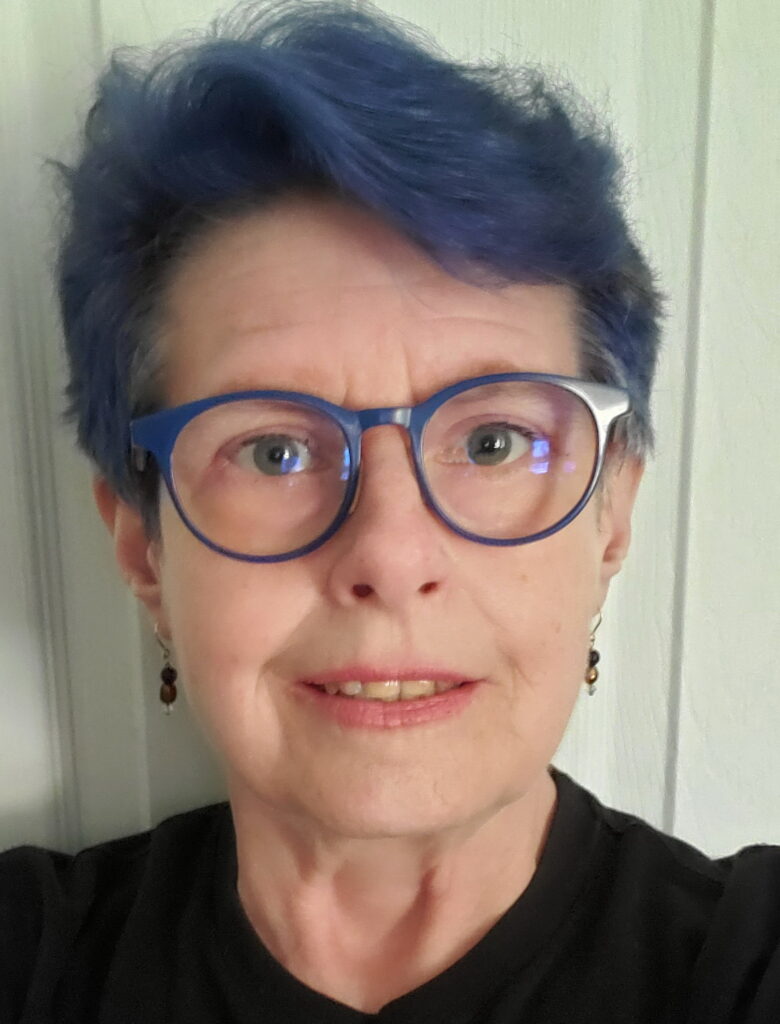
In new book, local author confronts eating disorders to reach readers who ‘felt alone’
The first story Emma Noyes ever put down on paper was called “The Friends.” It included stick figure drawings of characters who, she recalled, were going to a sleep-over at a friend’s house. It was around that time that she informed Mom Susan Noyes that she was going to be a writer.
Today, the Wilmette native and current Chicago resident is still telling stories. She has a three-novel Young Adult fantasy series already to her name, and a newly published contemporary romance novel, “Guy’s Girl,” published in October by Berkley Books, an imprint of the Penguin publishing group.
“Guy’s Girl” blends romance, a genre that Noyes loves and that she said allowed her “to write the ending I wanted for myself,” with something readers might not expect: an intense observation of the main character’s battle with bulimia.
Noyes knows the subject intimately. She is in recovery from her own eating disorders, as well as an obsessive compulsive disorder that triggered her journey into anorexia and bulimia. “Guy’s Girl” is, she said, her way to reach others who might think they’re fighting similar battles in isolation.
“I knew there were hundreds of thousands, if not millions of people out there that felt alone, experiencing exactly what I’d gone through. I wanted to let them know they’re not alone,” she says.
Noyes’ path to “Guy’s Girl” had detours into young adult fantasy, a genre she grew up loving to read — “I was always a big, big fantasy and sci-fi reader, growing up — Harry Potter, Twilight, The Hunger Games, all of the classics for my generation” — and which allowed her to self publish her “Sunken City” YA trilogy.
But she’s even more comfortable writing contemporary fiction, which she said might be because it’s similar to the kind of personal journaling she has done since childhood. Writing in a journal has been a constant in her life, especially during tough times, she said, and contemporary fiction can mirror what journaling was for her as she grew up.
“I was investigating the interior of my own mind, and observing the dynamics of the people in my life,” she said.
Noyes grew up in Wilmette with her mother and dad, Nick, the youngest of eight siblings. She went to New Trier High School, and took part in theater, dance and gymnastics.
What those around her didn’t realize was that Noyes was suffering from a form of obsessive compulsive disorder that she called invisible OCD. Unlike the common idea that OCD just involves unhealthy focuses on germs or touching items a certain number of times, her OCD invaded her mind with intrusive negative thoughts. Those would convince her that she was a bad person.
At the age of 18, during a service trip with a group from her church, Noyes made a fateful discovery. Because her group was fed very little during the trip, she was constantly hungry — and she discovered that the hunger somehow quieted the intrusive thoughts. When she returned home, thinner and still hungry, she liked what she saw in the mirror. And she thought that focusing on exercise and diet would help cure her OCD.
It seemed like a healthy strategy at the time, she said, and because exercise and diet are almost automatically considered to be positives, she slipped further into those habits without spotting the danger they represented for her. Nor did others notice, she said.
“I think a really big misconception about eating disorders is that you have to look skeletal. It is possible to have a really debilitating eating disorder and not look the way anorexics are supposed to look,” she said.
While she dealt with that, Noyes graduated from high school and headed to Harvard, where she studied history and literature. After graduation she worked in marketing and communications at Anheuser-Busch.
She wasn’t happy there, and she continued to write fiction in every spare moment, eventually writing the first novel of what became her YA “Sunken City” trilogy. At that point, she decided to become a full-time author. Her progress was initially rocky; her first agent didn’t like another book Noyes had written and was unresponsive in other ways, Noyes said.
She self-published her first YA novel. Readers liked it, and she ultimately self-published the entire trilogy. She continued to work on “Guy’s Girl” and searched for another agent.
Meanwhile, she said she finally acknowledged her anorexia to herself about three years after it started, and tried therapy before deciding “I could fix myself on my own. Obviously that didn’t happen, and it doesn’t for most people.”
The COVID pandemic hit when she was 25, and she moved back in with her parents. Around that time, her bulimia developed. She kept that secret, saying today that bulimia is harder to talk about than anorexia. She managed to stay purge-free for seven months, then relapsed in the aftermath of a tough break-up.
At her lowest, when she could barely get out of bed, Noyes said her path to recovery involved “going to my computer and writing about what I was experiencing. I had been writing in my journal about what was happening, not even with a novel in mind. But that’s when the character of Ginny Murphy, the main character in ‘Guy’s Girl,’ really started taking form.”
Noyes wrote from her soul, finishing the novel in less than two months — far more quickly than she usually writes. Part of her impetus was the raw emotional state she was in, after more than seven years dealing with both eating disorders: “When you finally start eating necessary nutrients that your body is crying out for, and the emotions you kept down for so long surface, it’s overwhelming.”
She credits her family for their emotional support as she recovered. She also credits finding the right therapist, someone who specialized in eating disorders. And she wants others suffering as she did with her invisible OCD to know that they aren’t alone, and that their disruptive thoughts aren’t true.
Her agent shopped “Guy’s Girl” to about 15 publishers. Noyes went with the editor who seemed to understand the book the best at Berkley accepted it. After the process of editing and going through drafts were complete, “Guy’s Girl,” was published in October of this year.
What’s more, the book her first agent was dismissive of, “How to Hide in Plain Sight,” is slated for release in September of 2024. That novel has changed shape since she first wrote it years ago. It features a character who battles the kind of invisible OCD Noyes deals with. She has also signed with a second publisher, Wednesday Books, for a second YA fantasy trilogy, this one a romance set. It’s set to start in 2025 with the first book, “Mare of Knight.”
Today, she lives with her Swedish fiance in Chicago, takes part in gymnastics classes for fun, and enjoys reading when she isn’t writing.
Noyes said the feedback from readers of “Guy’s Girl” has been positive.
“I have actually had a lot of women message me on Instagram and say they read the book, and that they were anorexic or bulimic or both, and just how much it meant to them, how much they felt seen. I’ve even had some women say how much it felt like their battle, and that it helped them to heal.” she said.
“That means more to me than I can ever express, because that’s exactly what I wanted the book to do.”
Guy’s Girl is available through bookshop.org, Barnes & Noble, and at the Book Stall in Winnetka. It can also be ordered at other independent bookstores, like Bookends & Beginnings in Evanston. The Sunken City trilogy is available through bookshop.org and Amazon.
The Record is a nonprofit, nonpartisan community newsroom that relies on reader support to fuel its independent local journalism.
Become a member of The Record to fund responsible news coverage for your community.
Already a member? You can make a tax-deductible donation at any time.

Kathy Routliffe
Kathy Routliffe reported in Chicago's near and North Shore suburbs (including Wilmette) for more than 35 years, covering municipal and education beats. Her work, including feature writing, has won local and national awards. She is a native of Nova Scotia, Canada.


